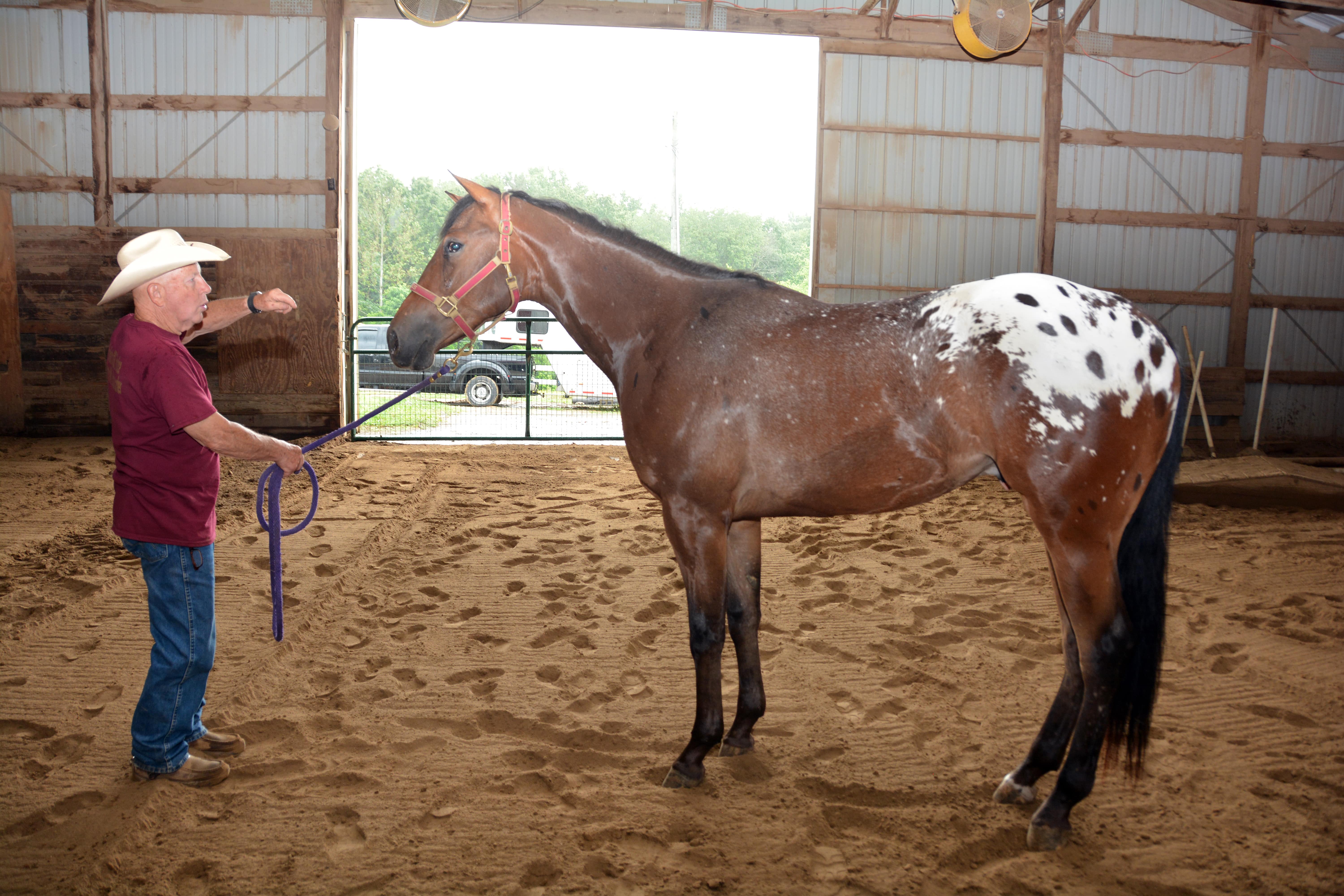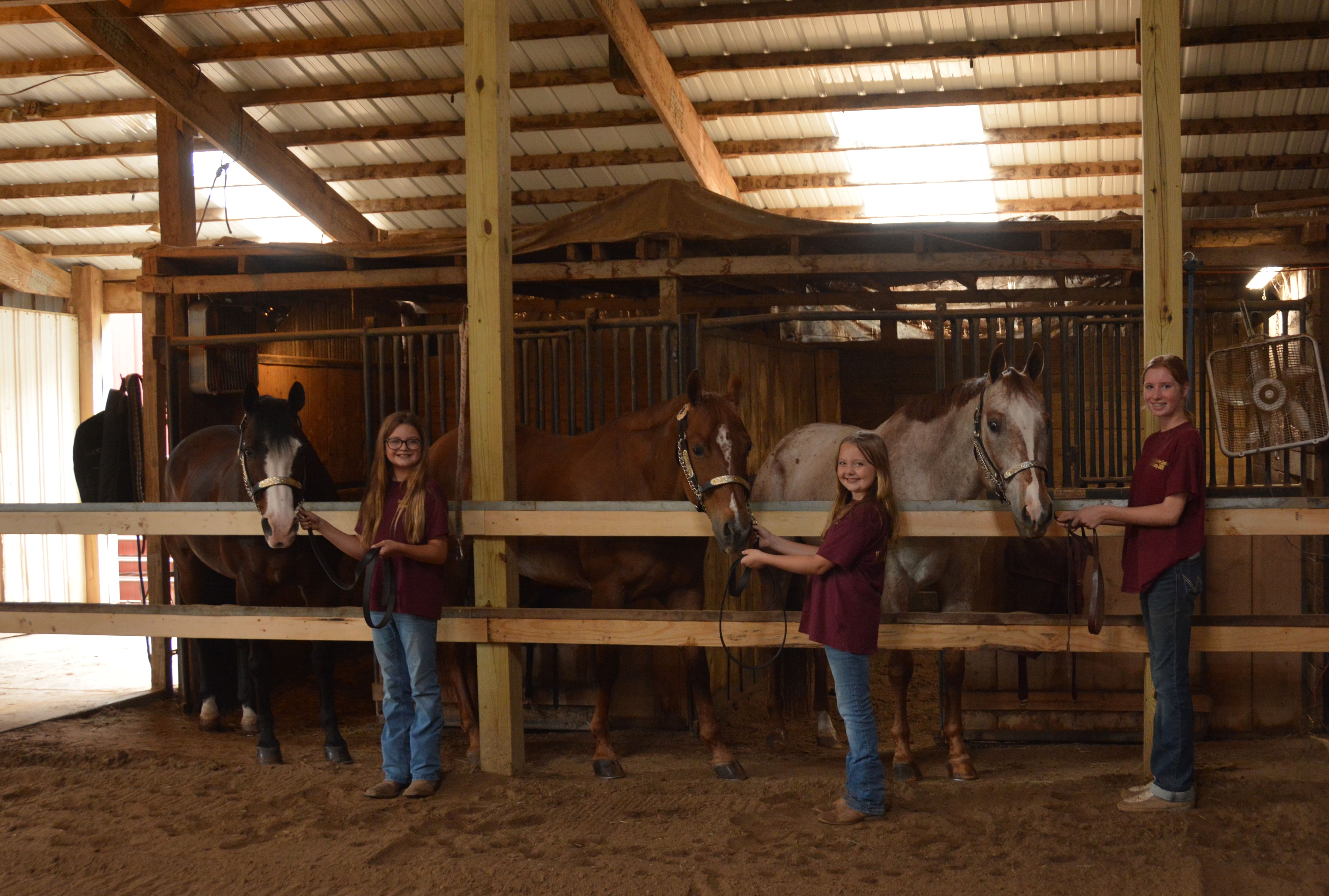Stay Informed
Spotting the Difference: There is more to Appaloosa horses than their coats
For most people, an Appaloosa is a beautiful horse with a spotted coat, and that’s about it. While that is generally accurate – they are beautiful, and they often have spotted coats – Indiana Appaloosa owners would like the rest of the population to know there is more to the breed than that. 
There are around 3,700 Appaloosas registered in Indiana, according to the breed’s national organization, the Appaloosa Horse Club (ApHC). The exact number is unknown because the club’s database is slow to reflect horses that have died, explained Lynette Thompson, ApHC executive secretary. In any case, she added, most of the Appaloosas in the U.S. are not registered. “For every one that’s registered, there are probably nine that are not registered,” she said.
An additional complication, Thompson added, is that many Appaloosas don’t fit the layman’s image of what an Appaloosa ought to look like. Many have the characteristic spotted pattern either all over their bodies or on their hindquarters, but variations are common and include only a few spots – or no spots at all.
Any horse whose parents are registered Appaloosas can be called an Appaloosa whether it carries the breed characteristics or not. But most Appaloosas have one or more of these characteristics, said Kenny Greves, who with his wife Bobbi owns Greves Equine Center in Bloomfield:
- The distinctive coat, which can be any one of several different base colors overlaid by a spotted pattern.
- Mottled skin.
- Vertically striped hooves.
- A sclera (the white part of the eye) that is readily visible even when the eye is held in its normal position. For most horses, the sclera is visible only when they roll their eyes, but on Appaloosas, it’s visible most of the time.
Greves’ barns house 25-30 horses, mostly Appaloosas and Quarter Horses. Some of these he owns – including his four-time Appaloosa World Champion stallion, Totally Hot Hunter – while others are there to be trained for the show ring.
“We are a training operation rather than a boarding operation,” explained Greves, who was a teacher and school administrator before his retirement. The training component is something he really enjoys.

“I was an educator for 43 years, so that’s kind of down my alley,” he said.
Another part of Greves’ operation is selling horses and horse semen, which is shipped across the country. Totally Hot Hunter has so far sired 38 foals, 70% of which have grown up to win national, world or futurity titles, he said.
The Appaloosa is a distinctly American breed, according to www.AppaloosaMuseum.org, tracing its ancestry to the horses bred by the Nez Perce, a tribe that lived in what today is eastern Washington, Oregon and western Idaho. By the mid-1700s, the Nez Perce had a strict breeding selection program, but after the Nez Perce War ended in 1877, the U.S. Army destroyed or sold off many of the tribe’s horses. Modern Appaloosas can trace their ancestry to the Appaloosas that survived the war, augmented with American Quarter Horse and Arabian bloodlines.
Greves said he enjoys how “personable” Appaloosas are – but he also likes their versatility, noting that they can be found competing in all sorts of events from Western and English pleasure riding to working-horse events such as cutting competitions.
“They are a diverse animal,” he said.




